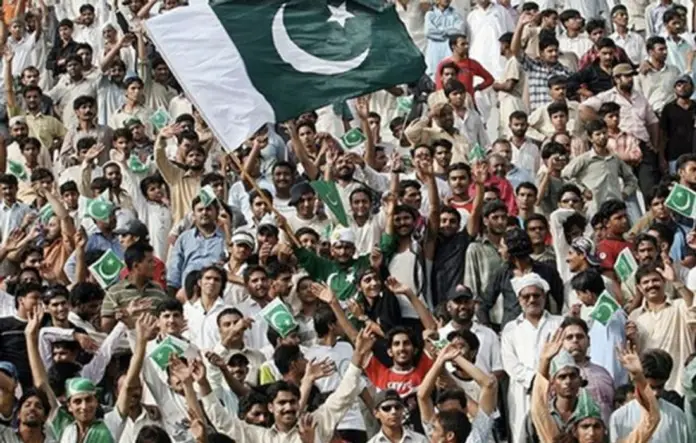The State of Pakistan today surpasses its platinum jubilee of transformation from an idea to the ground. Seventy-five years ago, our ancestors sacrificed their lives, relationships, and properties to reach the land of purity; the land of promise. Humble beginnings, but sheer metallic resolve saw us navigate the initial years into relative stability. From there on, it has been a roller coaster ride all the way. The question that today storms our minds is what to calibrate and what to celebrate. Every state is defined by some common factors, like territory, sovereignty, government, and population. What we need to calibrate today has to be introspection based on these factors. Due to the untiring efforts of the father of the nation, Quaid e Azam Muhammad Ali Jinnah, we were able to secure a homeland for us. Big enough territory with all types of geography and demography. What we were to actually gain we lost to the treachery of Redcliff Award; Kashmir, whatever we had gained, we lost half of it well before our silver jubilee celebrations can kick off, East Pakistan. Ever since we are trying to tie up what we are left with. A federation which keeps striving to remain and work together.
Speaking of sovereignty, the first I heard of it was when at school, my Pakistan Studies teacher, lectured on the objective resolution. I can recall the opening sentence, “Sovereignty belongs to Allah”. As a child growing into a boy, the concept of sovereignty for me remained confined to that hard-bound book at school or to the preface of our book on the constitution. Growing up to be a man helped me analyze its social and governance manifestations. The understanding of sovereignty remained two-pronged; an independent foreign policy in line with our national interests and being internally decisive to govern as embodied in the constitution. In retrospect, several questions boggled my mind, e.g. the disruption of democracy, being an American ally in the war in Afghanistan from 1979 to 1989, and then our decision to be part of the war on terror from 9/11 till the USA withdrew disgracefully from Afghanistan last year. Were these to be taken as diplomatic masterstrokes, covert stings or decisions casting shades on our own sovereignty? Financial dependence on the IMF and other financial institutions is a major impediment to exercising sovereignty internally too. A few incidents in recent history, like the US-led operation in Abbottabad, setting Raymond Davis free under duress, and the Salala attack on our soldiers from across the border in November 2011, again raised questions about our true sovereignty. Repeated drone attacks have gone unchallenged and the inability of the masses to bring about a regime change on their own are a few other grey areas in this regard.
The rule and roles of government that the state of Pakistan provided for its people (population; the 4th constituent of any state) have largely remained dubious. For almost half of these years, two variants of democracy, dynacracy (dynastic democracy) and kakistocracy (rule by the least competent) remained in vogue, and half the time, military dictatorships remained at the helm. Resultantly, the fruits of real democracy, which were to impart the necessity of compromise, social equality, the rule of the majority, individual liberties, and the worth of the individual; never ripened. However, compromise on principles became rampant. In politics, for the good at large, it vanished. Social and gender equality is still a work in progress as the rule of law was never prioritized. Twice, majority parties have been outmanoeuvred; once in East Pakistan (post-1970 elections) and a second time around in April 2022. The Constitution has been made into a waxy figment of thought which can be moulded to serve one’s own interests. Despite our constitution providing for people’s rule and claiming to be based on the aspirations of the people of Pakistan, the frequency with which it needs to be interpreted is mind-boggling for a layman. On the face of it, every other case put across to the competent authority invokes a need for interpretation. Individual liberties have remained curtailed most of the time.
And as I click away, my mind goes back to a question asked of me during a talk to locals while I was serving in the United Nations in an African country in 2008. Someone out of the audience at the county hall I was addressing stood up and asked me point blank, “Sir, what is wrong with Pakistan?” Although I replied diplomatically, the question left me fuming. Now I know.
But all is not black; there are patches of white or grey tending to white too. Foremost is the development of credible strategic deterrence with indigenization at its core. We today celebrate our post-independence resilience to overcome our initial difficulties as we draw inspiration from them. We today take to the victory stand to celebrate our achievements in sports like cricket, hockey, squash, and snooker. We put our hands together to acknowledge the role of the diaspora abroad in contributing to a better world. We applaud the role of our women in our national life, all these years. We celebrate our culture, performing and visual arts. We are proud of our culinary heritage. How we bounced back from the earthquake of 2005 and the floods of 2010 we commemoratetoday and in doing so we remember our heroes and volunteers like Abdus Sattar and Bilquees Edhi. We solemnly remember our resilience in the wake of our own war on terror today and can never forget the sacrifices of our Shaheeds (military, paramilitary, police, honourable civilians, and children of APS Peshawar). In my view, the biggest celebration of this platinum jubilee is the one never celebrated before. Let us give a standing ovation to the people and will of Pakistan. After all, it will be only the people of Pakistan who will calibrate the inputs so that we can celebrate the outputs. Long live Pakistan.






